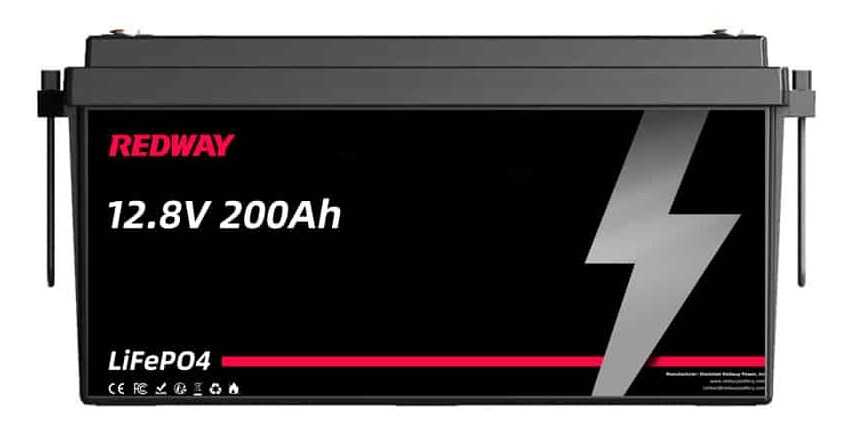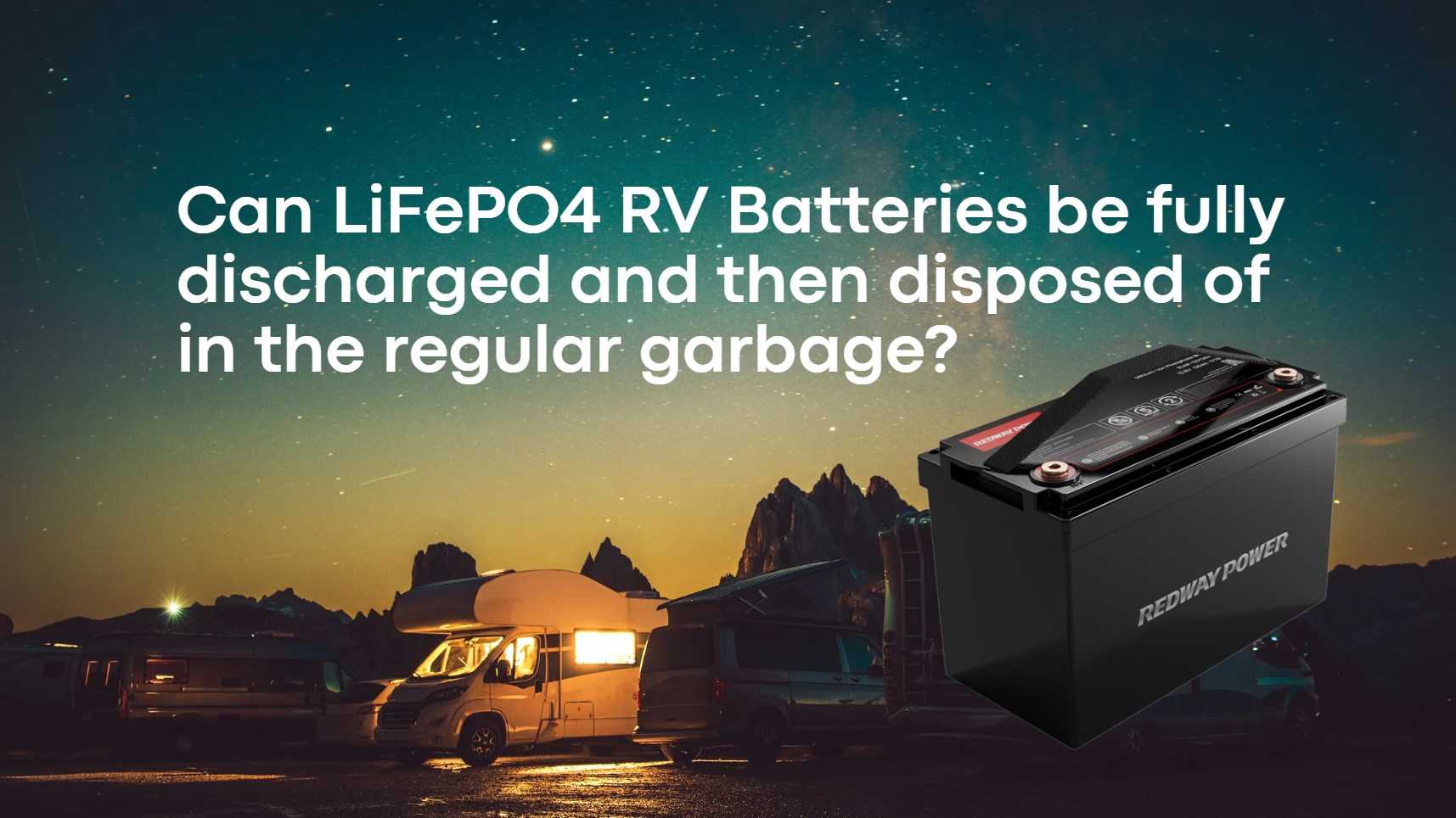-
Do Not Fully Discharge: It is not recommended to fully discharge LiFePO4 RV batteries. Fully discharging a LiFePO4 battery can cause irreversible damage and reduce its overall lifespan. It is best to maintain a safe level of charge to ensure optimal performance and longevity.
-
Recycling Programs: Many regions have established recycling programs specifically for batteries, including LiFePO4 batteries. These programs provide a safe and environmentally friendly way to dispose of old or damaged batteries. Check with local authorities or recycling centers to learn about the recycling options available in your area.
-
Local Recycling Centers: Local recycling centers often accept batteries for proper disposal. These centers have the necessary facilities and processes to handle different types of batteries, including LiFePO4 batteries. Contact your local recycling center to inquire about their battery disposal procedures.
Do Not Fully Discharge
-
Irreversible Damage: Fully discharging LiFePO4 RV batteries can cause irreversible damage. This can result in a loss of capacity and render the battery unusable. It is vital to prevent the battery from reaching a fully discharged state to preserve its functionality.
-
Optimal Performance and Longevity: To ensure optimal performance and longevity, it is recommended to keep the LiFePO4 RV battery’s state of charge above 20%. By maintaining a sufficient charge level, you can maximize the battery’s lifespan and avoid premature degradation.
-
Manufacturer’s Recommendations: It is essential to follow the manufacturer’s recommendations for LiFePO4 RV battery maintenance. They provide specific guidelines on charging, discharging, and overall battery care. Adhering to these instructions will help protect the battery and ensure its longevity.
Recycling Programs
-
Recycling Process: The recycling process for LiFePO4 batteries involves the collection and transportation of used batteries to a recycling facility. These facilities handle the proper dismantling and extraction of valuable metals from the batteries.
-
Proper Handling and Packaging: It is crucial to handle and package LiFePO4 batteries appropriately for recycling. This ensures the safety of the recycling process and reduces the risk of environmental contamination.
-
Recycling Facilities: There are professional lithium battery recycling organizations and facilities that specialize in the recycling of LiFePO4 batteries. It is recommended to find certified battery recyclers or drop-off locations through resources like the Green Directory or Call2Recycle.
Local Recycling Centers
-
Green Directory: The Green Directory is a helpful resource for finding professional lithium battery recycling organizations and drop-off locations. It provides information on where to dispose of LiFePO4 batteries responsibly.
-
Call2Recycle: Call2Recycle partners with battery drop-off locations nationwide. They have a locator tool on their website that helps individuals find participating stores, libraries, and resource recovery centers near them.
-
Local Recycling Centers: Local recycling centers may also accept LiFePO4 RV batteries for recycling. It is recommended to check with your local municipality or recycling facilities in your area to inquire about their acceptance of these batteries.

Call2Recycle or Earth911
-
Call2Recycle: Call2Recycle is a renowned battery recycling program that partners with battery drop-off locations nationwide. They have a locator tool on their website that helps individuals find participating stores, libraries, and resource recovery centers near them. By utilizing Call2Recycle, you can easily locate a convenient drop-off location for your LiFePO4 RV batteries.
-
Earth911: Earth911 is another useful resource for finding recycling options for various materials, including batteries. By visiting their website or using their search tool, you can locate nearby recycling centers that accept LiFePO4 RV batteries. Earth911 provides comprehensive information on recycling practices and helps individuals make environmentally responsible choices.
Retailers and Auto Parts Stores
Retailers and auto parts stores offer a wide selection of LiFePO4 RV batteries for customers looking to power their RVs efficiently. Popular options include Walmart, Road Warrior Inc., Lifeline Batteries, Inverters R Us, Battle Born Batteries, and Amazon. These batteries are known for their long lifespan, lightweight design, and high energy density. Customers can find these batteries both online and in-store, making it convenient to purchase and install the right LiFePO4 RV battery for their needs.
Battery Recycling Events
Proper disposal of LiFePO4 RV batteries involves recycling them at certified recycling centers. While specific battery recycling events for LiFePO4 RV batteries may vary, it is crucial to dispose of them at recycling centers where the raw materials can be reused. These centers ensure the safe handling and environmentally friendly recycling of LiFePO4 batteries. To find the nearest certified recycling center or learn about upcoming battery recycling events, it is recommended to contact local recycling centers, waste management facilities, or environmental agencies.
Follow Local Regulations
When dealing with LiFePO4 RV batteries, it is crucial to follow manufacturer guidelines, consult professionals if needed, and adhere to local regulations. Manufacturer guidelines provide important instructions for battery use, maintenance, and disposal. Consulting professionals such as RV technicians or local authorities can offer valuable insights and ensure compliance with regulations. Checking local regulations helps understand specific requirements for transportation, installation, and disposal of LiFePO4 RV batteries. By following these practices, you can ensure the safe and responsible handling of LiFePO4 RV batteries.
Remember, improperly disposing of lithium-ion batteries, including fully discharging them and placing them in regular garbage, can lead to environmental harm. Recycling is the recommended and responsible way to handle the end-of-life disposal of LiFePO4 RV Batteries and other lithium-ion batteries.





